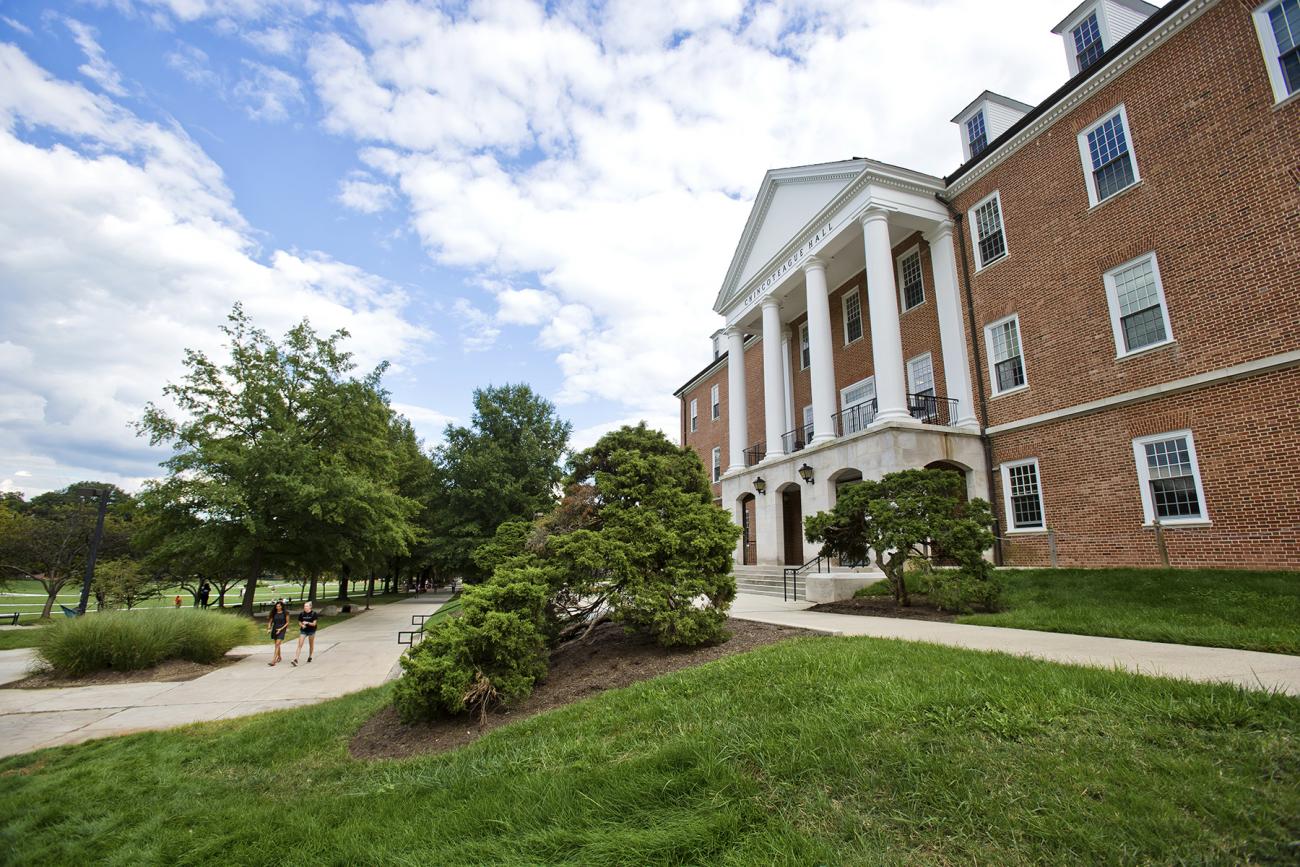Maryland first lady Dawn Moore ’97 says it was at the University of Maryland that she found her purpose.
She helped revitalize the campus’ chapter of the NAACP, serving as vice president. She and friends joined fellow African American activists in Washington, D.C. for the Million Man March. And she made valuable connections with classmates like now-Maryland Democratic Party Chair Ken Ulman, which propelled her into a two-decade career in state government, community organizing, nonprofit work and more.
“It was here I put my passion for service into action,” Moore, who earned a government and politics degree and a women’s studies certificate, said on Tuesday night at the Clarice Smith Performing Arts Center.
The wife of Gov. Wes Moore, she returned to her alma mater for a conversation with Deans Susan Rivera of the College of Behavioral and Social Sciences, Stephanie Shonekan of the College of Arts and Humanities and Kimberly Griffin of the College of Education, chatting broadly about the challenges of being female leaders, her priorities—or “passion pillars”—as first lady and why students should seek to make a difference in the world.
The evening wrapped with a performance of “Home” from the “The Wiz,” honoring Moore’s love for and support of the arts, sung by School of Theatre, Dance, and Performance Studies graduate Jordan Leah Embrack ’24, accompanied on the piano by Arts for All Director and Professor Craig Kier.
Here are four key topics from the conversation:
Children’s Mental Health
“I truly believe the mental health crisis we are living in is a crisis of a generation,” said Moore. As the mother of two, 13-year-old Mia and 10-year-old James, she’s acutely aware of the struggles children face in an era of smartphones and social media.
To help families address these issues, “Maryland is choosing to follow the science,” she said, citing the Moore administration’s investment in health care initiatives, especially mental health.
She’s also leading conversations at the Government House, the governor’s official residence, to address the issue, including an Oct. 6 “back to school” talk that will include youth perspectives. “The most important thing is to have that community and have those young people at the table,” she said.
Underestimated and Overlooked: Harriet Tubman’s Legacy
Moore and the deans reflected on the legacy of abolitionist Harriet Tubman, for whom UMD’s women, gender and sexuality studies department is now named.
“She was the embodiment of what it means to leave no one behind,” said Moore. “There are so many connections when I look at her leadership and what we’re trying to do in Maryland,” such as the governor’s goal to lift more families out of poverty through bills like the Family Prosperity Act, which expanded the child tax credit.
The “sister deans,” as they call themselves, acknowledged the struggles they still face as female leaders but also draw inspiration from Tubman. “People underestimated her and they overlooked her… that’s what allowed her to collect information and move in the spaces she moved in,” Griffin said. “That’s a superpower.”
Military Families
Moore knows firsthand what it’s like to have a partner overseas, because Gov. Moore served in Afghanistan from 2005 to 2006.
“I have a lot of empathy for the caregivers, for the spouses,” she said, citing the 150,000 people across the state who care for service members and veterans. “That’s why we are focusing on the whole family.” She touted the Moore administration’s partnership with the federal government on the Hiring Our Heroes program; Maryland’s Families Serve Act designed to expand employment opportunities for military spouses; and Maryland’s participation in the Elizabeth Dole Foundation’s “Hidden Heroes” campaign, which provides financial and mental health support.
UMD as a Springboard to Do Good
At the end of the evening, Moore urged UMD community members, especially students, to take advantage of their time on campus and get out of their comfort zone.
“Find something bigger than yourself and be a part of it,” she said. “Whether it’s through a religious organization, a community group or through the university … look at all the things you can do to make a difference.”
This article by Karen Shih originally appeared in Maryland Today.



